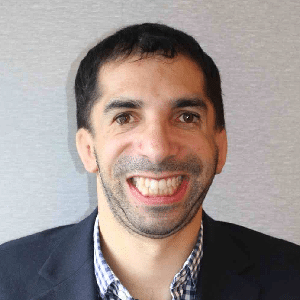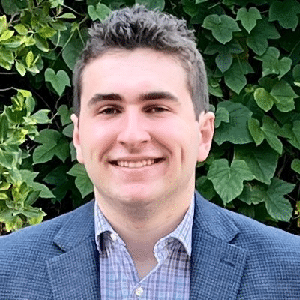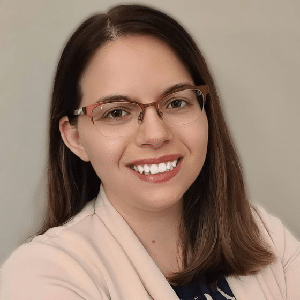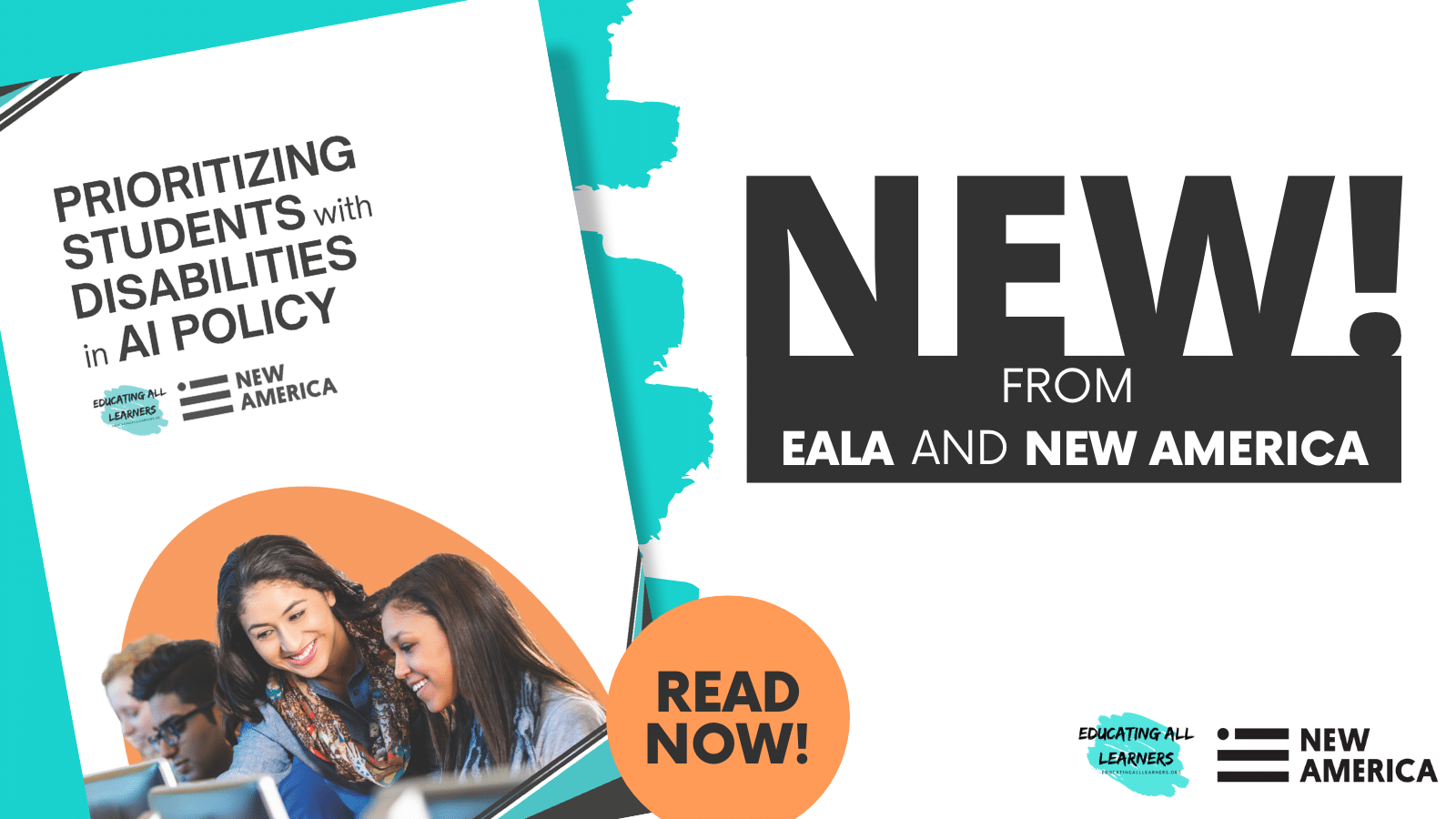Could a Data-Driven Mindset Shift be the Key to A Sense of Belonging for All Students?
In this case study, we explore how one project within the EALA Community of Action sought to find a way to better understand the mindsets of leaders in regard to learning differences and disabilities. And after 36 hours, walked away with the means and a plan to turn a free customizable surveying tool and a digital library of resources for school leaders into a reality.
Setting the Stage for Action
In January 2023, 22 participants were invited to participate in the first-ever in-person Community of Action convening. Participants came from organizations across many different education sectors: from direct service providers and school and district innovators to edtech and non-profit personnel. The one commonality – each participant could bring a critical perspective on real-world problems in education and the tenacity and innovation to propose actionable solutions to come out of the convening.
EALA also invited five individuals with extensive experience and expertise in education, philanthropy, and acceleration to provide guidance and coaching throughout the event.
After a day full of fast-moving and productive sessions, participants formed groups, cultivated their ideas, and prepared to present their proposals for participatory funding. In this unique participatory funding model, the members of the community of action would have the sole responsibility to decide which groups received funding, empowering them to take ownership of their ideas and bring them to fruition.
A Group Is Formed
After participants self-selected groups based on the four identified focus areas, three individuals gathered at the “Leader Commitments” corner of the room. Thus, though not yet named, the project team Buzzfeed for Belonging was formed.
Sam Drazin, CEO of Changing Perspectives, stood as a team leader. Not only is Sam a non-profit founder and previous teacher, but his experiences as a school programming leader made him an invaluable member of the Buzzfeed for Belonging team.
Riley Mulcahy, founder of the RILEY Project and communications lead at Compass High School, helped the team stay actionable as the team resources lead. With his connections to experts across the space and access to learning disability resources, he helped his team define the problem of practice and form a solution that connected to his work at the high school and his non-profit organization. Riley adds, “As we consider the metrics that drive change, it is crucial that we prioritize inclusion. With the education landscape constantly evolving, it is essential to approach these metrics with a focus on accessibility and inclusivity, especially when it comes to students with learning differences. This mindset is vital in ensuring that all students can be reached and supported.”
Crystal Eldridge, a program strategy associate at the Council of Chief State School Officers (CCSSO), brought a policy and an implementation focus to the team. With her background in strategy and experience with the connection of school programming and policy decision-making, Crystal was the final piece this team needed.
Sam led his group with a key driving question, connecting both the dots of project management and their focus area of leader commitments. “One of the things that I was able to contribute is being able to help my group say, ‘Okay, here is the end goal – how do we get there? How do we divide up roles and responsibilities’? A large part of what I do in my job, working directly with schools and districts, is helping leaders buy into inclusion and dismantle the barriers that prevent it. Rather than putting up walls for inclusion, I help them take down the walls for inclusion. Whether it’s at the school level, district level, county level, or state level, I always start by thinking about what do these leaders need to be successful in their work, and what do they need to take on an opportunistic perspective rather than a barrier or an obstacle perspective?”
Defining a Problem of Practice
As a group, the Buzzfeed for Belonging team identified one key problem of practice within their focus area: Leader Commitments. “School leaders face a problem that needs to be addressed: students who learn differently and students with disabilities are not being adequately served in our education system. Marginalized students and their families are often left to find solutions on their own when navigating the obstacles presented by a complex educational system without holding the community, specifically school leaders, accountable.”
From there, with the help of their coach, they named their first step: “The first step in addressing this issue is understanding the mindset of school leaders, teachers, and students. A mindset shift is the first step in creating communities where all students feel like they belong and can succeed academically.”
An Impactful Solution
Together, Sam, Riley, and Crystal grappled with what solution would make a real difference in the mindset shifts of leaders. They returned to Sam’s key question, what do leaders need to be successful? What do they need to shift their perspective?
Sam noted the disconnect between what leaders knew to be happening and how students were feeling. Riley brought up the current changes in social-emotional learning and overall sense of belonging resulting from distance learning. Crystal questioned how to make these items relevant, not only from a policy perspective but also from a leadership perspective.
Ultimately, the team landed on data-driven decision-making as the key lever of change. “By implementing intentional metrics to gauge the understanding of learning differences and disabilities within a school community, school leaders will have access to valuable information on their community’s efforts to create a greater sense of belonging for all students,” says team Buzzfeed for Belonging.
Participatory Grant Selection
The next day, the Buzzfeed for Belonging team pitched their full idea to the rest of the Community of Action. “A free customizable surveying tool and an associated digital library of resources for school leaders to understand the needs and experiences of students with learning differences as well as their current values, understandings, and their teachers’ mindsets and comfortability around inclusion.”
The EALA Community of Action provides up to $150,000 in participatory grant funding for selected projects. It is up to the participants, and their groups’ project pitches, to determine who and how much to fund. Buzzfeed for Belonging was one of two projects selected for full funding by the rest of the Community of Action members.
What’s Next
The Buzzfeed for Belonging team emerged from this Community of Action understanding that in order to create inclusive communities where all students feel like they belong and can succeed academically, we must first understand the mindset of school leaders, teachers, and students and use data-driven decision making as a lever for change. Their proposed survey will benefit all learners, especially those who are marginalized, by giving school and policy leaders the information needed to make informed decisions that contribute to the growth of inclusive environments. They see the proposed resource development as a roadmap for school leaders to expand their knowledge and take action.
Reflections
Big Takeaway
Regarding the sense of community that the EALA Community of Action provides, Sam states, “One of the things I loved about the Community of Action was the chance to network and build relationships with others. For example, I recently connected with Jason Allen from the National Parent Union, and Changing Perspectives is now a partner of theirs. I also attended a fundraiser organized by Riley, who works at a school for students with learning differences, and met David Fink from Eye to Eye and other people.”
What we are still figuring out:
The Buzzfeed for Belonging project knows that an important step in this process is helping leaders recognize the immense value of both the tool and the power of inclusion itself. Anticipating the challenge of survey fatigue, their aim is to create a tool that stands out from the rest and actually reduces the strain on educators and leaders. To support this work, the team will utilize the power in fellow partner organizations who genuinely believe in the transformative impact of inclusive education.
What I would tell other leaders/educators/students:
Sam talks of the opportunity for connection and collaboration, saying “I think that is the biggest way I have been able to transfer my work. One of the things that I like to think of myself, in the work that I do at Changing Perspectives, is to help be a kind of agent, connector, or a cross-pollinator of resources and support for the 300-plus schools that I support in a given year… Sometimes, schools just don’t know where to begin. They don’t have the time. So by going to the Community of Action and connecting with 20 individuals or representatives from other organizations, I’m now able to strengthen my Rolodex of resources and support that I can then connect the schools that I’m working with to.”
Resources
About The Author
Sam Drazin, a nationally recognized educator and changemaker, Founder and Executive Director, applies his personal and professional background to lead Changing Perspectives’s mission to strengthen school communities through social-emotional learning, disability awareness, empathy development, and inclusion. Sam was born with Treacher Collins Syndrome, a rare congenital disorder resulting in both facial anomaly and hearing loss. His experiences, both as a student with a disability and as a teacher working in an inclusive classroom, helped him recognize the importance of supporting students in developing the essential life and relationship skills that underpin equity, inclusion, and social change. The students and educators we work with around the nation are a constant inspiration for Sam. Learn more about Sam Drazin…

Riley Mulcahy is a graduate of Saint Mary’s College in Moraga, California, is proud of his accomplishment despite being diagnosed with Dyslexia at age seven. He attributes much of his success to attending small, supportive schools that cater to students with learning differences. He is a strong advocate for accessible education for all. In addition to his studies, Riley has gained experience in social media, marketing, fundraising, and community building through his involvement at Compass High School in Belmont, California, and Hanger Hall School in Asheville, North Carolina. Read more about Riley Mulcahy…

Crystal Eldridge is a Program Associate of Student Supports at CCSSO, where she focuses on the Advancing Inclusive Principal Leadership (AIPL) network and Student and Staff Wellbeing Community of Practice. As part of the AIPL work, Crystal hosts a monthly webisode series for the Council highlighting state work in inclusive education and experts in the field. Before coming to CCSSO, Crystal worked in public school accountability and school performance at the Arkansas Department of Education. She also has seven years of experience working in adult education, helping remove barriers to employment for adult learners in central Arkansas. Crystal is passionate about equity in education for learners of all abilities and backgrounds. She holds a Master of Education in Adult and Professional Learning from the University of Arkansas at Little Rock.

School Background
School Background Discription
